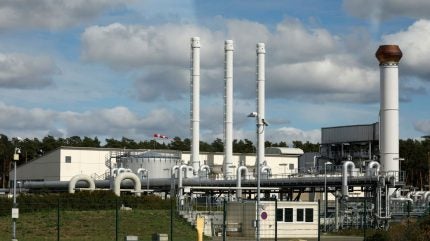
The EU nations have reached an agreement on a 14th package of sanctions against Russia in response to its war in Ukraine. Diplomats confirmed the sanctions, including the first measures targeting Russian LNG, on Thursday.
The EU has restricted the re-export of Russian LNG in its waters but hasn’t completely banned imports, unlike the ban on Russian seaborne oil in 2022. Despite this, a few EU countries continue to import gas from Russia through pipelines via Ukraine.
Diplomats said the package also sanctions three Russian LNG projects and includes a clause designed to allow Sweden and Finland to cancel Russian LNG contracts.
Belgium, which holds the rotating EU presidency until 1 July, said on social media platform X that the package “maximises the impact of existing sanctions by closing loopholes”.
🇪🇺 EU Ambassadors just agreed on a powerful and substantial 14th package of sanctions in reaction to the Russian aggression against Ukraine.
— Belgian Presidency of the Council of the EU 2024 (@EU2024BE) June 20, 2024
This package provides new targeted measures and maximises the impact of existing sanctions by closing loopholes.
EU ambassadors met on 8 May to discuss potential actions for its 14th round of sanctions against Russia’s LNG as the European Commission (EC) aimed to approve these sanctions by July.
How well do you really know your competitors?
Access the most comprehensive Company Profiles on the market, powered by GlobalData. Save hours of research. Gain competitive edge.

Thank you!
Your download email will arrive shortly
Not ready to buy yet? Download a free sample
We are confident about the unique quality of our Company Profiles. However, we want you to make the most beneficial decision for your business, so we offer a free sample that you can download by submitting the below form
By GlobalDataReuters said countries discussed the proposed new measures for more than a month and, under the influence of Germany, weakened one of the Commission’s suggestions to prevent further circumvention.
Most of the EU’s current measures are still in effect, including the ban on Russian seaborne oil imports and restrictions on exporting advanced technology goods to Russia.
However, Reuters reported that experts in the gas market suggest that this decision will likely have minimal impact, as the transfer of gas through EU ports to Asia accounts for only around 10% of Russia’s total LNG exports.
On the contrary, to reduce its dependence on Russian fossil fuels by 2027, the Agency for the Cooperation of Energy Regulators (Acer) proposed that Europe decrease its Russian LNG imports “gradually, beginning with sporadic Russian LNG imports”.
According to data from ACER, Russia’s LNG production reached 42 billion cubic metres (bcm) in 2023. The top 28 destinations for Russian LNG were the EU (18bcm), China (11bcm), Japan (8bcm) and South Korea (2bcm), together accounting for more than 90% of all Russian LNG production.
Previously, Offshore Technology reported that Gazprom, Russia’s state-run energy company, delivered the second shipment of LNG from Russia’s Portovaya LNG plant on the Baltic Sea to Spain. According to Reuters‘ analysis of shipping data, unlike oil exports, Russian LNG exports have not faced Western sanctions.
Urgewald, a German non-profit environmental research organisation, found that Russian LNG is frequently transported to Belgium, France, the Netherlands and Spain. In 2023, the EU received 31 million tonnes (mt) of Russian LNG, with imports hitting a monthly record of 3.2mt in December.



